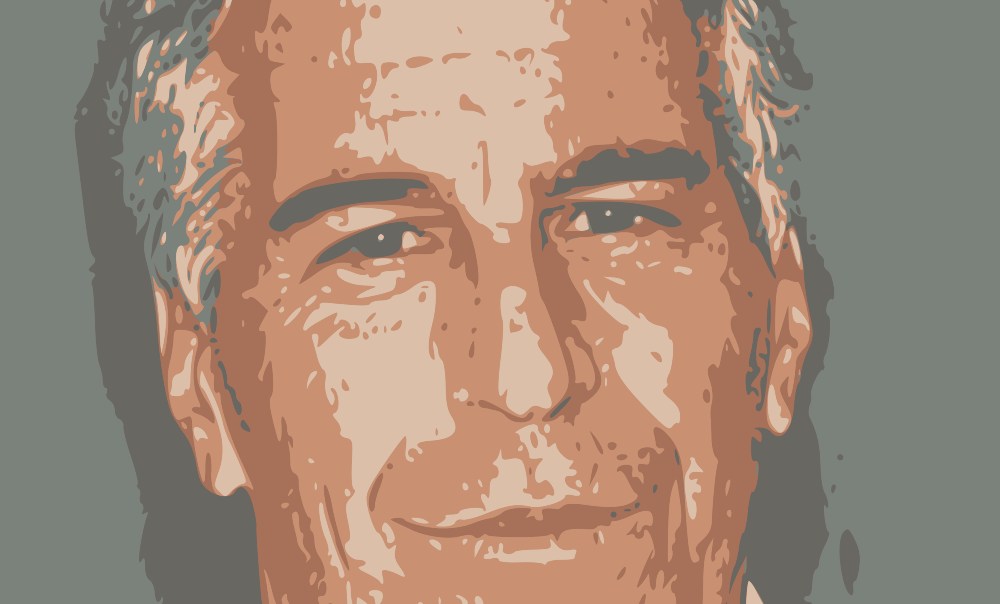
If Miami Herald reporter Julie K. Brown had gotten the better-paid job she wanted at the Washington Post in 2017, we might never have learned how close financier Jeffrey Epstein came to getting away with his monstrous crimes.

Passed over for the Post job, Brown resumed her Herald beat (covering state prisons), but also began looking into mysteries surrounding the Epstein case. Her painstaking research — she devoted an entire spare room to voluminous files and police reports — led to her three-part “Perversion of Justice” series, published by the Miami Herald in 2018. Brown’s series prompted action from the office of Geoffrey Berman, then U.S. Attorney in Manhattan, and to the reopening of the decades’ old miscarriage of justice.
Brown’s book, also called Perversion of Justice, is based on the Herald series. The book adds several intertwined and new tales. It is partly the story of Epstein’s malevolent sexual trafficking, partly an account of Brown’s dogged investigative reporting, and finally an indictment of a justice system that shamed and mistreated the young and poor. It’s a timely and powerful reminder of how much local news matters.
Perversion provides a close-up look at some of the many players, among them Epstein’s fixers — lawyers like Ken Starr and Alan Dershowitz –and justice department personnel like Alex Acosta, the U.S. attorney in Miami (later Donald Trump’s Secretary of Labor) who helped cut Epstein’s sweetheart deal. The book also explores Epstein’s connections to some rich and powerful men, acquaintances such as Bill Clinton, Prince Andrew, Bill Richardson and even Bill Gates.
Outlines of the Epstein saga have been much reported in the media: how a wealthy financier with political connections finagled an immunity agreement from the federal government despite having molested, raped, and sexually abused dozens of girls (Brown identified 80 young women). Epstein got off by pleading to two state charges of soliciting prostitution. He served a mere 13 months in a county jail with daily work release and an unlocked cell door.
Perversion‘s most unforgettable chapters are devoted to Brown’s interviews with Epstein’s victims, those she was able to persuade to speak for the record. The abused women had all been very young (13 to 16), pretty, blond, and often needy or neglected. They provided haunting accounts of all-to-similar ordeals.
Following Epstein’s death in his prison cell in 2019, readers will want to know whether Brown agrees with the official declaration that it was a suicide. But while Brown has questions about his death, citing physical evidence at odds with suicide, she doesn’t have any definitive answers. She resorts to a quote from President Trump (an Epstein buddy), who questioned his own Attorney General’s conclusion. Trump’s typically coy take: “People are still trying to figure out what happened. Was it suicide? Or was he killed?”
If there’s one solid criticism of Brown’s amazing achievement in covering the story of a lifetime, it’s that so many mysteries remain. We still don’t know how and when Epstein began his life of crime; how he got so incredibly wealthy; and why presidents and billionaires continued to associate with him after his Florida conviction. There are other unknowns like the behind-the-scenes story of Epstein’s sweetheart deal and his interactions with now-imprisoned Ghislaine Maxwell.
Brown dedicates her book to “all Epstein’s survivors” with special mention of Michelle Licata, Courtney Wild, Virginia Giuffre, and Jena-Lisa Jones.” Brown gives hefty thanks to those who first steered her on her mission: Palm Beach police chief Mike Reiter and the late Joe Recary, a Palm Beach police detective. Among other tips, they told her to “follow the money.”
Brown shared her breakthroughs with her hardworking partner, Herald staff photographer Emily Michot. Not only did Michot participate in the sometimes scary investigative slog but she also served Brown by “keeping me sane.” Brown pays special tribute to Monica Leaf, the Miami Herald‘s librarian and to Casey Frank, the paper’s investigative editor, who gave Julie free rein to do the reporting. She also acknowledges the thanks she owes to newsroom colleagues who “let me cry on their shoulders and assured me that I could do it.”
Today Brown says she’s backed away from the story, content to leave future Epstein coverage to other reporters. Meanwhile she’s been working with Adam McKay, who directed the Big Short, planning to turn Perversion of Justice into an HBO mini-series.
What Brown accomplished is astonishing. She showed us that we have a flawed, unequal and sometimes corrupt justice system. Without Brown’s reporting and without her painstaking reexamination of justice gone astray, Jeffrey Epstein might still be flying high, consorting with the elite, and abusing young women.
Discover more from Post Alley
Subscribe to get the latest posts sent to your email.

I agree and hopefully there is more to come on this story. Where would we be without relentless
investigative journalism?